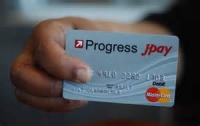
Take Action
We are currently collecting information about the ways that family members of prisoners and detainees get cheated by the high cost of sending money to fund inmate accounts, and the ways that this money is given back upon release from custody (such as debit cards from private companies). There are pending federal actions where your stories could make a difference in these practices. Please fill out our survey to help us end prison profiteering.
The more stories we can collect the greater impact we can have.
If you or someone you know has been charged high fees to send money to a prisoner or to access money when released from custody we would like to know the following:
1) The name of the facility and state it is located in.
2) The name of the company processing the money or issuing the debit card.
3) How much money was taken from you? Were the fees disclosed? If so, how?
4) What documentation do you have?
5) When did it occur?
6) Did you object?
Please send your responses to: kmoses@humanrightsdefensecenter.org
There are numerous ways that prisons and jails have become profit-generating engines, and each new prison-related profiteering endeavor is an obstacle to ending the mass incarceration epidemic in the US.
Among the most significant and detrimental of these prison-profiteering schemes occurs in thehandling of money on behalf of prisoners and their families.
As private profit-driven companies get contracts to take over services such as money-transfers and the distribution of release funds, the prison system gets a deeper hold on our communities and puts afurther burden on the most vulnerable people in our society by charging excessive, unreasonable fees.
Appropriate regulations related to these companies could help stop them from spreading and protect people in the areas where they have already gotten established.
Congress passed the Electronic Fund Transfer Act in 1978 to protect consumers who pay or receive money through electronic channels. The Act is implemented by detailed regulations that are currently overseen by the Consumer Financial Protection Bureau (CFPB). These regulations have grown to encompass debit cards, and special protections have been added concerning prepaid debit cards. Presently many of the most important protections of the Act do not apply to ways in which jails and prisons use money-transfer services or prepaid cards as a method of returning the personal funds of prisoners.
As a result, we now see extensive financial abuse of prisoners and their families, who are often poor or destitute and have their limited funds taken from them in ways over which they have no control. This illustrates the need for regulation by the CFPB to protect this vulnerable and marginalized population from exploitation and victimization by the financial industry and government agencies. This amounts to a massive oversight, as over 650,000 prisoners are currently released from state and federal prisonsannually, [1] while local jails nationwide process an estimated 12 million people annually–the vast majority of whom are released from custody shortly after booking.[2]
——————–
[1] US Dept. of Justice, http://www.justice.gov/archive/fbci/progmenu_reentry.html [2] Local jails admitted an estimated 11.6 million persons during the 12-month period ending June 30, 2012, which was similar to 2011 (11.8 million) and down from 13.6 million in 2008..http://www.bjs.gov/content/pub/pdf/jim12st.pdf